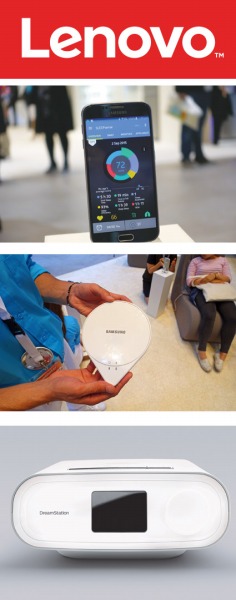
PRIME submitted photos
By Gary M. Kaye
Editor, Tech50+ (www.tech50plus.com)
At the recent IFA (Internationale Funkausstellung), the big European consumer electronics show in Berlin, it was clear that technology is waking up to sleep. Two major players in consumer electronics, Samsung and Philips, introduced significant sleep related products. Several smaller firms also offered products that promise to either help us sleep, or help us wake up happier, while monitoring sleep quality.
What’s the big deal about sleep? As of 2013 Americans were spending more than 32 billion dollars annually to get a good night’s sleep, though The National Sleep Foundation says we are failing miserably. In a 2013 study, the NSF concludes the majority of Americans say they do not get a good night’s sleep. And, there’s increasing evidence linking insufficient sleep with diseases from diabetes to high blood pressure to cancer.
At IFA, Samsung introduced its SleepSense system – a thin disk that slips under your pillow and works with a smartphone app. The disk connects with a variety of devices, including those by SmartThings, a company Samsung acquired in its creation of an Internet of Things ecosystem. If you fall asleep in front of your connected television, the SleepSense system will turn it off, and start your coffee pot or turn on lights when you wake up. It analyze your night’s sleep, including the number of hours of that most restful, or REM, sleep. Samsung says it has been working with Harvard Medical School Professor Dr. Christos Mantzoros ”to provide personalized professional tips on improving your sleep quality, covering your lifestyle, nutrition and exercise.”
SleepSense was actually created by Israeli firm, EarlySense, specialists in remote patient monitoring. So far no pricing has been announced, but Samsung sources indicate it will probably run about $250.
Philips Electronics had a big presence at IFA. The brand is known in the U.S for lighting and personal care items (Norelco razors, Sonicare toothbrushes); but is a huge player in Europe. Philips showed multiple products to help with sleep, including its Hue lighting system, which allows you to wirelessly control home lighting and alter the color to help you wake up, read, or soothe the way to sleep. But the big sleep news from Philips is its DreamFamily System, aimed at those who suffer from sleep apnea. From 18 to 22 million Americans are estimated to suffer from this sleep disorder, which disrupts sleep cycles and can even lead to death. The Philips Dream Family consists of three elements; the DreamStation – basically a CPAP (Continuous Positive Airways Pressure) machine used to force air into the airways –an available humidifier attachment and a very lightweight and comfortable CPAP mask designed not to leave marks (and to allow conversation while it’s being worn), and the DreamMapper application which tracks your sleep and provides recommendations for steps you can take for better sleep. Philips has yet to announce U.S. pricing or availability for the system.
A third sleep monitoring system unveiled at IFA is Sleepace from Chinese based Shenzhen Medica Technology Development. This system also consists of three elements. The RestOn smart sleep monitor is a strap and sensor that slides under your sheet and monitors your sleep patterns. It can communicate directly with a smartphone app, or with the Nox, a small canister-like device that emits soothing sounds and light. It monitors sleep and the environment in your bedroom – things like temperature, humidity, CO2 levels, ambient noise and light. The smartphone app puts it all together for you. The RestOn strap and sensor are already available on Amazon for about $150. The entire Nox Smart Sleep System is expected to be available on Amazon this month for about $280.
Withings, which makes a number of wireless health related devices including scales, trackers, and blood pressure monitors, has introduced the Aura Total Sleep System. The system begins with a Connected Alarm Clock with a wake-up light and a sound system (which can be programmed with Spotify). You can add the REM sleep tracker that goes under your pillow to follow your sleep patterns. You can monitor it all with an app for either iOS or Android. Price for the whole package is roughly $300.
Finally, Jaybird, which makes wrist-worn fitness trackers, includes sleep monitoring in the Jaybird Reign. It links to a smartphone app (either iOS or Android) that tracks the number of hours you sleep and the quality of your sleep. Price is $182.14 at Amazon.com.
The bottom line – with the development of these new sleep related technologies, chances are we’ll be spending billions more to get a good night’s sleep. But if these technologies really do help, we should be able to have a more restful, healthy sleep, without the side effects of the sleeping pills millions of us take.
Gary Kaye is the creator of Tech50+ (www.tech50plus.com), the leading website covering technology from the Baby Boomer perspective. Kaye has been covering high tech for more than 30 years with outlets including NBC, ABC, CNN and Fox Business. He is a regular contributor to AARP and other websites on issues regarding the nexus of technology, seniors and baby boomers.